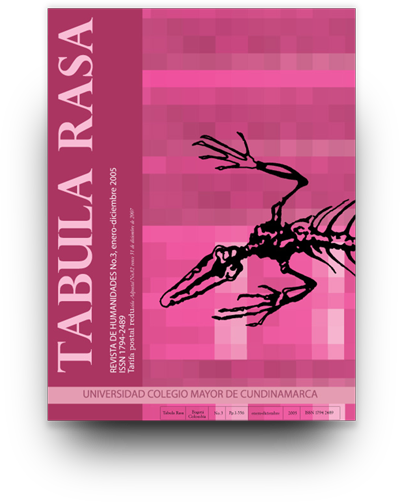«Dancing like a Black Man». Rythm, Race, and Nation in Esmeraldas, Ecuador
«Bailando como negro»: ritmo, raza y nación en Esmeraldas, Ecuador
Show authors biography
Throughout the African diaspora blackness has long been associated with rhythmic dancingabilities. The association is often naturalised in popular discourses to suggest that blackpeople have an innate sense of rhythm – that rhythm is «in their blood». This charaterisationis at times appropriated by individuals who self identify as black and consider their dancingskills an important part of their embodied racial identity. Such representations of race are apowerful force in shaping social relations and it is therefore crucial to understand how theyare reproduced and made meaningful in everyday life. This paper attempts to do so byinterrogating the naturalised link between race and rhythm in the case of Esmeraldas, Ecua-dor. Drawing on detailed ethnographic material from this city, it emphasises the shifting,often ambiguous processes of racial identification, it questions closely the relationship be-tween bodies and discourse, and it highlights the significance of particular social and politicalcontexts in the construction of racial differences.
Article visits 1672 | PDF visits 124
Downloads
Abric, J. 1993. «Central system, peripheral system: their functions and roles in the dynamic of social representations», en http://www.swp.uni-linz.ac.at/content/index.htm
Augostinos, M. y I. Walker. 1995. Social Cognition, An Integrated Introduction. Londres, Sage Publications.
Chambers, Iain. 1986. Popular Culture: The metropolitan experience. London/New York, Methuen. Cowan, Jane K. 1990. Dance and the Body Politics in Northern Greece. Princeton, Princeton University Press.
Cox, Rupert A. 2003. The Zen Arts: An anthropological study of the culture of aesthetic form in Japan. London/New York, Routledge Curzon.
de la Torre, Carlos. 2002. Afroquiteños: Ciudadanía y Racismo. Quito, CAAP.
Foster, Susan Leigh. 1992. Dancing Bodies.’ Incorporations, edited by Jonathan Crary and Sanford Kwinter. New York, Zone.
Hall, Stuart. 1996. «What is This “Black” in Black Popular Culture?» Stuart Hall: Critical Dialogues in Cultural Studies, edited by David Morley and Kuan-Hsing Chen. London/New York, Routledge.
Mauss, Marcel. (1934) 1992. Techniques of the Body. Incorporations, edited by Jonathan Crary and Sanford Kwinter. New York, Zone.
Rahier, Jean Muteba. 1998. «Blackness, The Racial/Spatial Order, Migrations and Miss Ecuador 1995-96». American Anthropologist 100 (2):421-430.
Sansone, Livio. 2003. Blackness Without Ethnicity: Constructing race in Brazil. New York, Palgrave Macmillan
Savigliano, Marta E. 1995. Tango and the Political Economy of Passion. Boulder/San Francisco/ Oxford, Westview Press.
Shilling, Chris. 1993. The Body and Social Theory. London, Sage.
Stoler, Ann Laura. 2002. Carnal Knowledge and Imperial Power. Berkeley/Los Angeles/London,University of California Press.
Stutzman, Ronald. 1981. «El Mestizaje: An all-inclusive ideology of exclusion». In Cultural Transformations and Ethnicity in Modern Ecuador, edited by Norman E. Whitten. Illinois, University of Illinois.
Taussig, Michael. 1987. Shamanism, Colonialism and the Wild Man: A study in terror and healing.Chicago/London, University of Chicago Press.
Turner, Bryan S. 1984. The Body and Society: Explorations in social theory. Oxford: Blackwell.
Wade, Peter. 2002. Race, Nature and Culture: An anthropological perspective. London, Pluto Press.
Wade, Peter. 2000. Music, Race, and Nation: Música tropical in Colombia. Chicago/London, The University of Chicago Press.
Wade, Peter. 1999. «Working Culture: Making cultural identities in Cali, Colombia». Current Anthropology 40(4):449-471.
Whitten, Norman E. (1974) 1994. Black Frontiersmen: Afro-Hispanic culture of Ecuador and Colombia. Prospect Heights, Illinois: Waveland Press.




